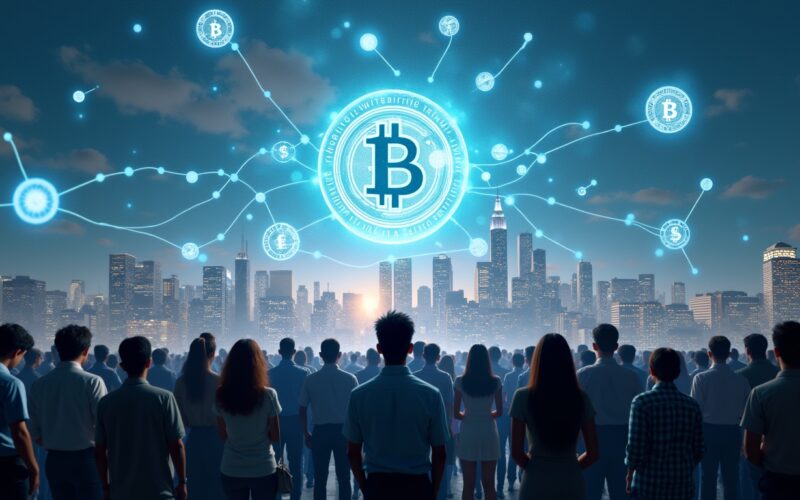Understand More on Real World Assets (RWA)

Frequently Asked Questions (FAQ) About RWA
What is the difference between RWA and a cryptocurrency like Bitcoin?
Bitcoin is a native digital currency created on a blockchain. Its value is not tied to a specific physical asset. An RWA token, on the other hand, is a digital representation of a real-world asset like a piece of real estate or a U.S. Treasury bond. Its value is derived directly from the value of the underlying asset it represents.
How does RWA tokenization work for something like a house?
First, the legal ownership of the house is verified. A legal entity is then created to own the property, and this entity issues digital tokens that represent a fraction of its ownership. For example, the house could be divided into 10,000 tokens. You could then buy one token, giving you 1/10,000th ownership of the property. The tokens are then securely held on a blockchain, and their value is tied to the value of the house, including any rental income or appreciation.
What are the risks of investing in RWA tokens?
While RWA tokens are backed by real assets, they still carry risks. The most significant is the off-chain custody risk. If the physical asset is not properly managed or is subject to a legal dispute, the value of the on-chain token could be affected. There are also risks related to regulatory changes, liquidity in the secondary market, and the security of the underlying smart contracts.
Which blockchains are best for RWA?
The choice of blockchain depends on the specific asset. Ethereum is currently the most popular choice due to its security and maturity. Solana is gaining traction for its high speed and low fees, making it suitable for frequent trading. Other chains like Polygon and the XRP Ledger are also being used for their specific strengths, such as a strong DeFi ecosystem or efficient cross-border payments.
Is RWA the same as security token offerings (STOs)?
RWA is a broader term. All security tokens are a form of RWA, but not all RWA tokens are securities. For example, a token that represents fractional ownership of a piece of land is typically a security and would need to comply with securities laws. However, a token that simply tracks a physical commodity like gold might not be. The key is to understand the legal and regulatory framework in which the token is issued and traded.

Pingback: The New Way of Investing for Everyone: How RWA Puts Rich People’s Million-Dollar Assets in Your Hands